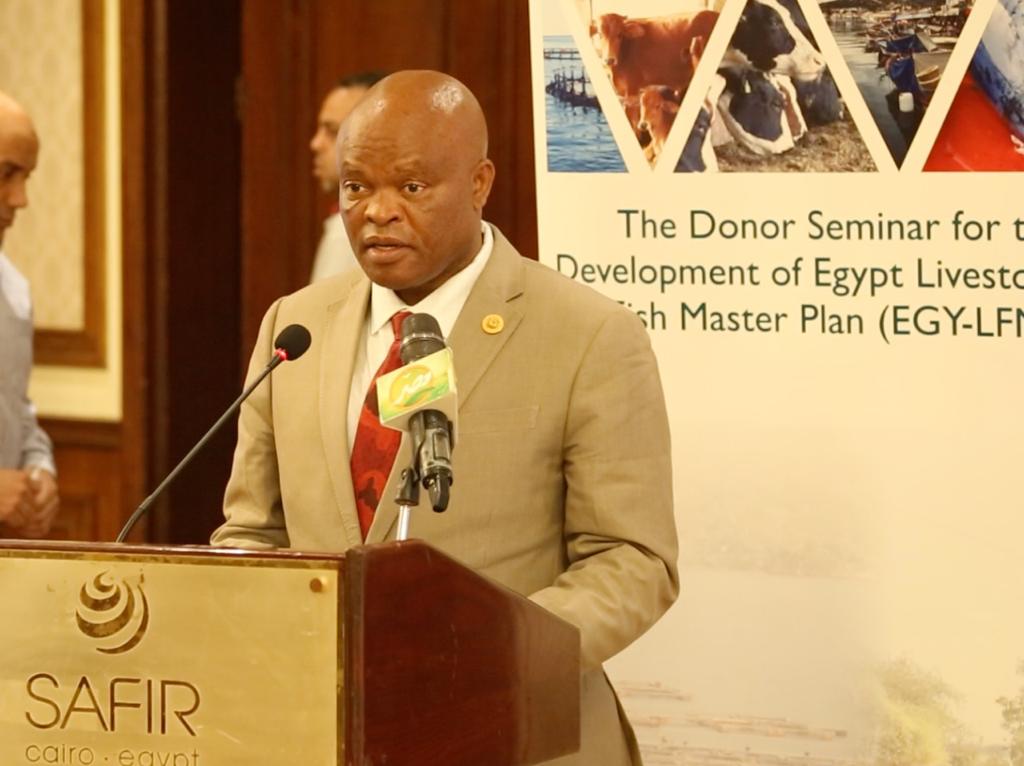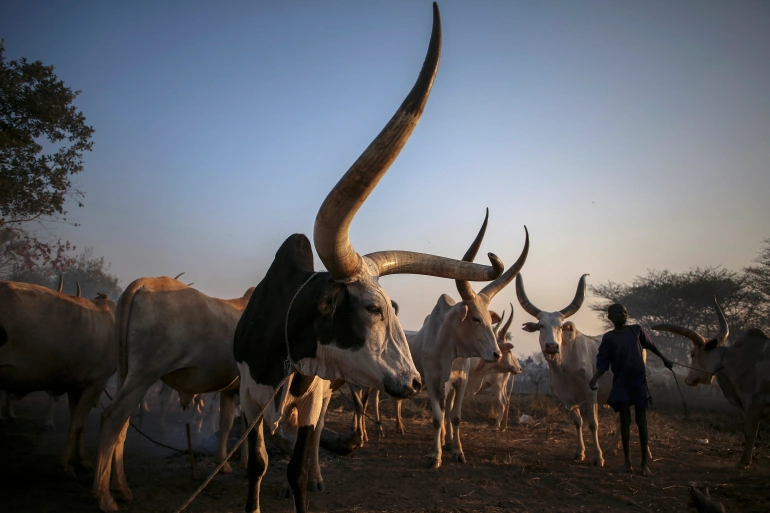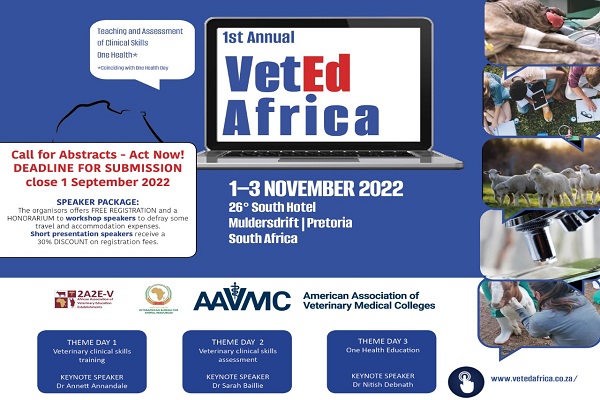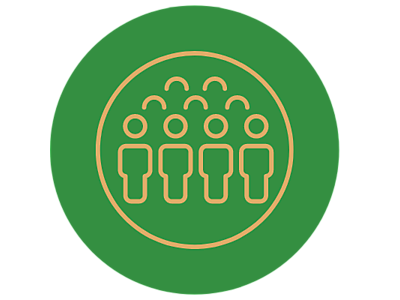
Dear Stakeholders & Partners,
Attached below is an announcement from AU-IBAR's Acting Director, Dr. Nick Nwankpa, regarding Dr. Huyam Ahmed Mohammedelamin Salih's assumption of the position of Director. Dr. Salih assumes her position as Director of AU-IBAR on August 1, 2023.
English Announcement: https://app.box.com/s/24yh0zevu7fqm7bgbvefzm8xt1roystd
French Announcement: https://app.box.com/s/4w82655yl15gkv0ar7lv0muhemq61itp
View Full Post and Comments
Source: AgriLinks
The United States Department of Agriculture’s (USDA) Foreign Agricultural Service, USAID and African Union Inter-African Bureau for Animal Resources (AU-IBAR) are working together to implement a multiyear project focused on creating standard methods and procedures in animal health (SMP-AH) with African countries. The essential goal is to stabilize the livelihoods of people who depend on selling their livestock by controlling livestock diseases that impinge on ability to trade the animals. The SMP-AH project utilizes the technical expertise from USDA and AU-IBAR to deliver training on a variety of topics, including disease surveillance, epidemiology, laboratory diagnostics, rapid response and large population disease control. Read More
View Full Post and Comments
Source: James Wanzala, Standard Media
Africa’s lifeblood is largely dependent on livestock farming, providing livelihoods, food security, and income opportunities for its populace.
At the heart of recognising this immense potential was the African Union’s Inter-African Bureau for Animal Resources (AU-IBAR) that since 2017, embarked on a journey with the Sustainable Development of Livestock for Livelihoods in Africa (Live2Africa) project.
This transformative initiative was poised to revolutionise the livestock sector, fostering sustainable development and empowering communities across the continent. Live2Africa focused on addressing the key challenges faced by livestock farmers, improving productivity, enhancing market access, and promoting environmentally friendly practices.Read More
View Full Post and Comments

By Dr. Simplice Nouala; Head of the Agriculture and Food Security Division at the African Union Commission
Global North perceptions of the livestock sector should not be imposed on poor countries that suffer from undernutrition.
As the 2022 United Nations Climate Change Conference (COP27) proceeds in Egypt, few seem to be acknowledging that the elephant in the room is actually a cow. The livestock sector has faced global scrutiny for its contribution to climate change, but is reducing livestock production actually a fair, or even an honest, climate outcome? Read More
View Full Post and Comments
Qualified universities and specialised knowledge-based institutions are invited to apply for consideration as African Union Centres of Excellence in the following disciplines:
- Aquatic ecology and biodiversity conservation; and,
- Management of Aquatic ecosystems, including Environmental Protection.
Access More information and apply by 31 October, 2022
View Full Post and Comments

The First Annual VetEd Africa Conference on ‘Veterinary Clinical Skills Training and Assessment for OneHealth” – VetEd Africa 2022 – will be held on 1-3 November, 2022 in Pretoria, South Africa.
Academicians and researchers from veterinary establishments across Africa are invited to submit abstracts for peer review. There are speaker packages to defray some accommodation and travel expenses. Submit your abstract via https://www.cvent.com/c/abstracts/25bcf86e-cb1a-4c2f-8606-39a6dd7dcf2d by 1st September, 2022.
Continue Reading

To coordinate, support, monitor, and evaluate the implementation of the African Union One Health Strategy for Zoonotic Disease Prevention and Control across the Member States, the African Union Interagency Group on One Health has been established. The Interagency was established during a meeting on One Health that took place from 13-14 June 2022 at AU-IBAR in Nairobi, Kenya. The Interagency comprises several AU offices that have been mandated to deal with various aspects of human/ animal health interventions, namely: The Africa Centre for Disease Control and Prevention (Africa CDC); The African Union InterAfrican Bureau for Animal Resources (AU-IBAR); The Scientific, Technical and Research Commission (STRC); The Department of Agriculture, Rural Development and Blue Economy (DARBE); The Department of Health, Humanitarian Affairs, and Social Development (HHS); the InterAfrican Phytosanitary Council (AU-IAPSC); and the Citizens and Diaspora Organizations (CIDO).Read More
View Full Post and Comments
 Picture: @Gmelich
Picture: @Gmelich
The African Union- InterAfrican Bureau for Animal Welfare (AU-IBAR), Africa Network for Animal Welfare (ANAW), and the World Federation for Animals (WFAN) have released a joint report titled "Towards adoptation of the UNEA Resolution: Animal Welfare - Environment-Sustainable Development Nexus. Read more
View Full Post and Comments
The African Union has unveiled a new initiative that seeks to enhance the empowerment of women and girls on the continent. The newly announced “African Union’s Women and Youth Financial and Economic Inclusion Initiative”, seeks to unlock USD20 billion, to enable financing opportunities and parity in employment for at least 1 million African women and youth by 2030. While unveiling the initiative, the African Union Commission Deputy Chairperson, Dr Monique Nsanzabaganwa emphasised that women and youth form the biggest part of Africa's population at nearly 75 percent, yet they continually face significant socio-economic barriers that constrain their ability to contribute meaningfully to their communities, countries, and continental development. See attachement.
View Full Post and Comments

The Food and Agriculture Organization of the United Nations (FAO) and the Ministry of Agriculture, Animal Industry and Fisheries (MAAIF) have scaled up the Predictive Livestock Early Warning Information System (PLEWS), currently being implemented in Kenya, to Uganda to better be able to gauge and predict issues affecting cross-border dynamics. Read more from source
View Full Post and Comments






 Picture: @Gmelich
Picture: @Gmelich